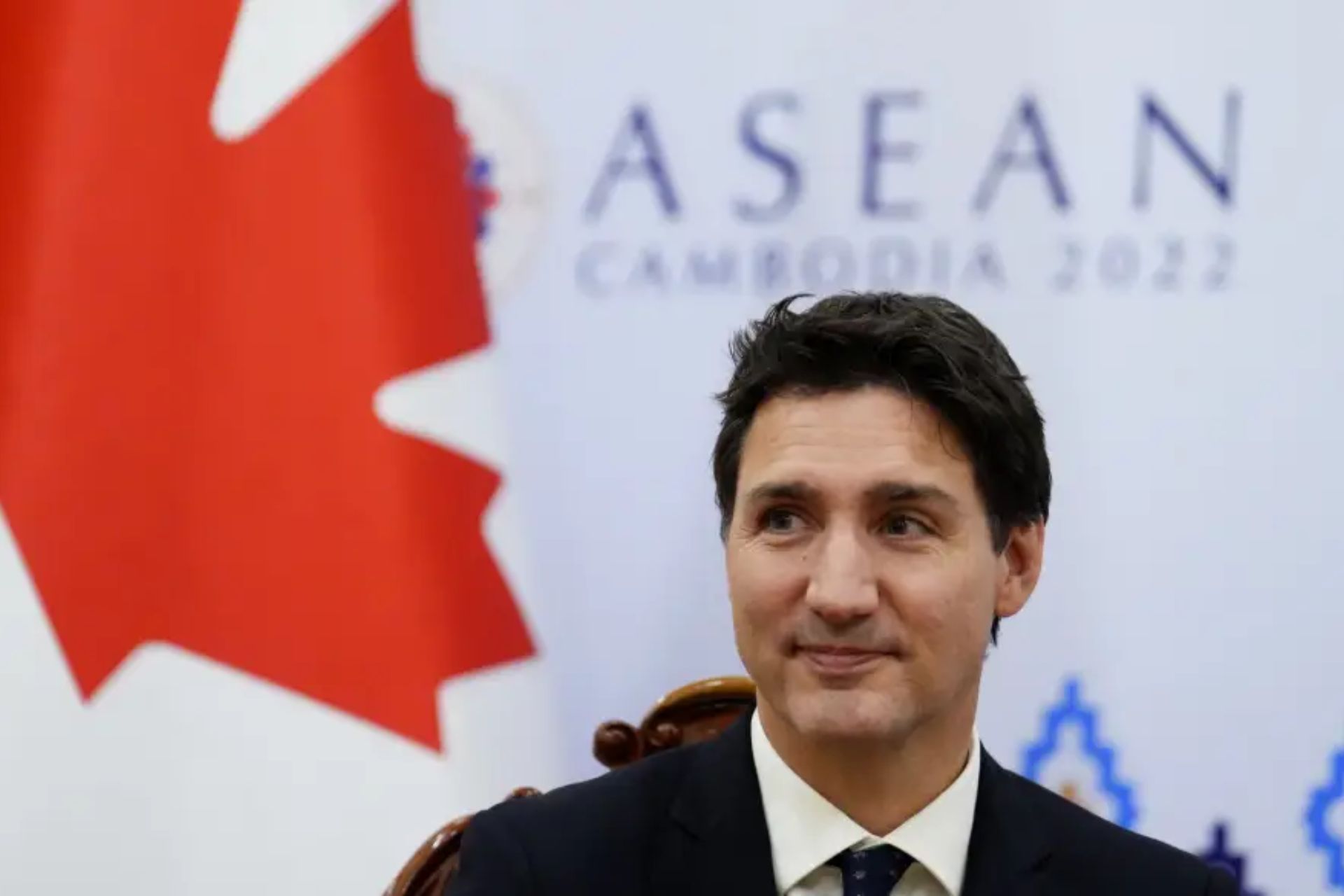Image Name: Trudeau Discussing Trade And Security
Image Credit: PM.gc.ca
Prime Minister Justin Trudeau will go to Laos later this month to attend the ASEAN Summit. Deepening ties in trade and security will top the agenda as the visit marks an important leg of Canada’s diplomatic engagement in the effort to bolster its presence in the Asia-Pacific region, an increasingly pivotal area for global economic and security interests.
Canada’s Growing Relations with ASEAN
With 10 Southeast Asian countries, it is among the fastest-growing regions worldwide, with a population of over 670 million with an economy worth $3 trillion. That is the reason it attracts so many countries which seek to extend their influence in the Indo-Pacific. However, Canada has actively been striving to warm up its relationship with ASEAN, looking at it both through trade and security. Trudeau’s visit reflects that strategy.
Canada has established its trade footprint significantly throughout Southeast Asia in the past few years. In 2021, the country was declared a strategic partner for ASEAN, thereby taking one step closer to securing a Free Trade Agreement. Extensive opportunities are presented to Canadian businesses, particularly in the fields of technology, agriculture, clean energy, and education. However, the most effective benefit of this partnership goes beyond trade. There’s also cooperation on the issue of security, be it cybersecurity, counterterrorism, or maritime security.
The Relevant Agenda for Canada
Asean is an important, almost untapped market for Canada, and as markets in North America and Europe become saturated, Canadian companies ever more look to Asia. The visit by Trudeau is critical to building momentum toward securing a comprehensive free trade deal with Asean. One of the central issues of Trudeau’s government is the diversification of trade, particularly in relation to the economic shocks connected with the COVID-19 pandemic and uncertainty over the U.S. involving the former President Donald Trump. At present, Canada’s trade with ASEAN amounts to over $31 billion annually and is expected to grow significantly with the signing of an FTA. He thereby attends the summit to evidence Canada’s commitment as a partner to ASEAN’s members, who would be able to invest in the long-term economic growth of the region.
A Growing Concern
One would argue that Trudeau should be particularly concerned about the trade issues that will end up being on the priority agenda, but besides trade, there is certainly security for Canada, the key ally to the United States, a G7 member country, with deep concern regarding the regional stability, the freedom of navigation and respect to international law, especially in the South China Sea. Further engagement with ASEAN will enable Canada to take a stake in regional stability. The focus of his visit would probably include talking about the contribution of Canada toward Southeast Asia’s maritime security, disaster response, and peacekeeping efforts. This cooperation is important not only for the sake of Canadian national security but also for the aim of having a safe world, which is crucial for Canada because of the world’s ever-increasing multipolarity.
Image Name: Trudeau At ASEAN Summit
Image Credit: Global News
Regional Challenges
Coming at the height of crises southeast Asia is facing from unrest in Myanmar to economic variations brought by the pandemic, the ASEAN summit offers Trudeau a chance to open dialogue with ASEAN leaders on how Canada can be part of the solution for these issues. Myanmar still continues to be one sensitive topic in the ASEAN region with human rights abuses concerning the military junta still an issue. Canada has been quite vocal against the junta, and has also brought sanctions against the key military leaders. One of the discussion points during Trudeau’s participation in the summit will most certainly be Myanmar, where he should present Canada’s arguments for mounting more international pressure on the regime to restore democracy and respect human rights.
Navigating a Changing World
In recent years, Canada has placed growing emphasis on the importance of multilateral diplomacy in the face of a complex global landscape. The old-established alliances are being tried as well as tested; and against that trend, new dynamics of power emerge, where Canada must continue to engage diverse partners in order to protect its interests in both economic and security affairs.
The Asia-Pacific region, therefore ASEAN at its heart, is crucial to the future growth of Canada. A bloc located strategically with economic dynamism, it is an indispensable partner for countries that want to diversify their economic and political relationships. Attending the summit for Trudeau means much more than trade agreements-it really sets Canada up as a stable and forward-thinking player on the world stage.
What It Means for Canada
That would make Canada’s engagement with Southeast Asia important in its own right. Indeed, the coming decades are likely to see the region of the Indo-Pacific become a major driver of economic and security trends. It thus presents opportunities and challenges for Canada as it builds up good, enduring relationships with ASEAN and is a matter of very concrete interest for Canada’s economic prosperity and for its role in maintaining world peace and stability.
Trudeau’s attendance at this summit looks like the most decisive commitment to these goals. Canada, through the deepening of ties with ASEAN would be in a great position to seize opportunities under the framework of this region’s growth and also share the security framework of that region. The summit result could probably consolidate bilateral and multilateral partnership, making sure that Canada remains a key actor in the Indo-Pacific for years to come.






